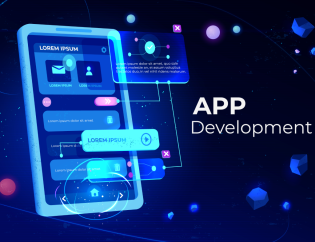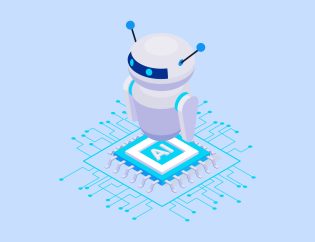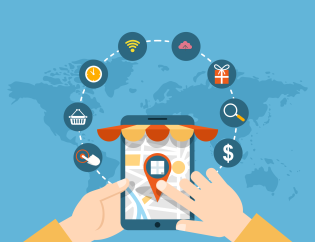
In an era where mobile apps have become an integral part of our daily lives, the demand for versatile and efficient app development is higher than ever. While traditional development methods have their merits, the integration of Artificial Intelligence (AI) is rapidly revolutionizing the mobile app development landscape. AI's adaptability and problem-solving capabilities are proving to be a game-changer across various domains. Let's explore how AI is reshaping mobile app development for a wide range of industries.
1. Personalized User Experiences:
E-commerce: AI-powered recommendation engines analyze user behavior to suggest products tailored to individual preferences.
Healthcare: Apps can provide personalized health recommendations and treatment plans based on user data.
2. Enhanced User Engagement:
Gaming: AI algorithms predict player behavior, adapt game difficulty, and offer personalized challenges, keeping gamers engaged.
Social Media: AI-driven content curation ensures users see relevant posts, increasing their time spent on the platform.
3. Efficient Content Creation:
Content Publishing: AI-generated content can help automate news articles, reports, and other textual content.
Advertising: AI can create and optimize ad content, targeting the right audience with compelling visuals and copy.
4. Improved Security:
Finance: AI-driven fraud detection algorithms protect users from financial scams and unauthorized transactions.
Authentication: AI-based biometrics like facial recognition enhance security in apps requiring user identification.
5. Streamlined Customer Support:
Retail: AI chatbots provide instant customer support, answering queries, processing orders, and handling returns.
Travel: Apps offer real-time assistance, such as flight status updates and hotel bookings, through AI-powered virtual assistants.
6. Data Analysis and Insights:
Analytics: AI processes large datasets to provide actionable insights for businesses, enabling data-driven decisions.
Education: Apps use AI to track student performance, helping educators tailor lessons to individual needs.
7. Predictive Maintenance:
Manufacturing: Industrial apps predict machinery maintenance needs, reducing downtime and saving costs.
Transportation: AI-driven apps monitor vehicle health, preventing breakdowns and improving safety.
8. Accessibility and Inclusivity:
Education: AI assists students with disabilities by providing alternative learning methods and aids.
Healthcare: Apps use AI to help individuals with visual or hearing impairments access information and services.
9. Agile Development:
Project Management: AI helps in resource allocation, task prioritization, and project timeline management.
Quality Assurance: AI-driven testing tools identify bugs and vulnerabilities, ensuring smoother development cycles.
In conclusion, AI's integration into mobile app development is not just a trend; it's a necessity. Its adaptability and problem-solving capabilities allow businesses across various domains to create apps that are more personalized, engaging, secure, and efficient. As AI continues to advance, the possibilities for mobile app development are boundless. Embracing AI-driven solutions is not just about staying competitive; it's about delivering exceptional user experiences and meeting the evolving needs of today's diverse industries.









